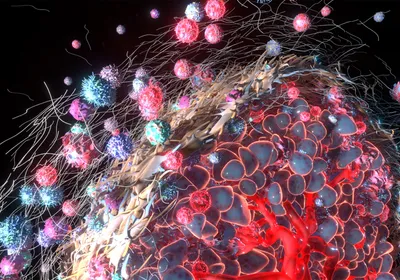Aspirin and other nonsteroidal anti-inflammatory drugs reduce the risk of cancer by inducing apoptotic cell death. How this occurs, however, is unknown. A critical pathway for apoptosis involves the release of cytochrome c from mitochondria. This interacts with Apaf-1 to activate caspase proteases that orchestrate cell death. Douglas R. Green from La Jolla Institute for Allergy & Immunology, San Diego, and colleagues, found that treatment of a human cancer cell line with aspirin induced caspase activation and the apoptotic cell morphology. The effect was blocked by the caspase inhibitor zVAD-fmk (Neoplasia 2000, 2:505-513).
Further analysis of the apoptotic event showed that aspirin induces mitochondrial release of cytochrome c into the cytosol. The release of cytochrome c from mitochondria was inhibited by overexpression of the antiapoptotic protein Bcl-2, and cells that lack Apaf-1 were resistant to aspirin-induced apoptosis.
These data provide evidence that the release of cytochrome c is an important ...






















